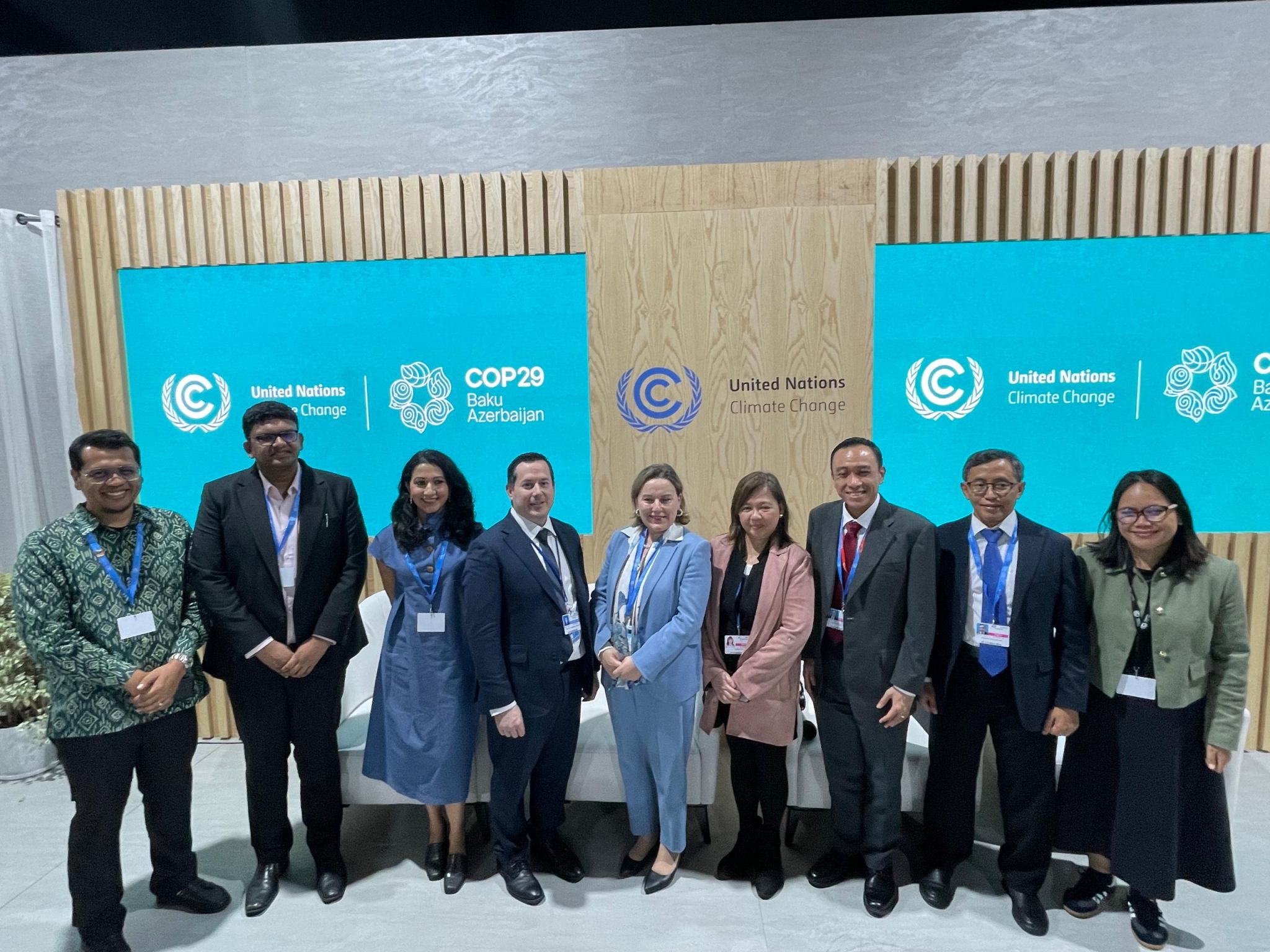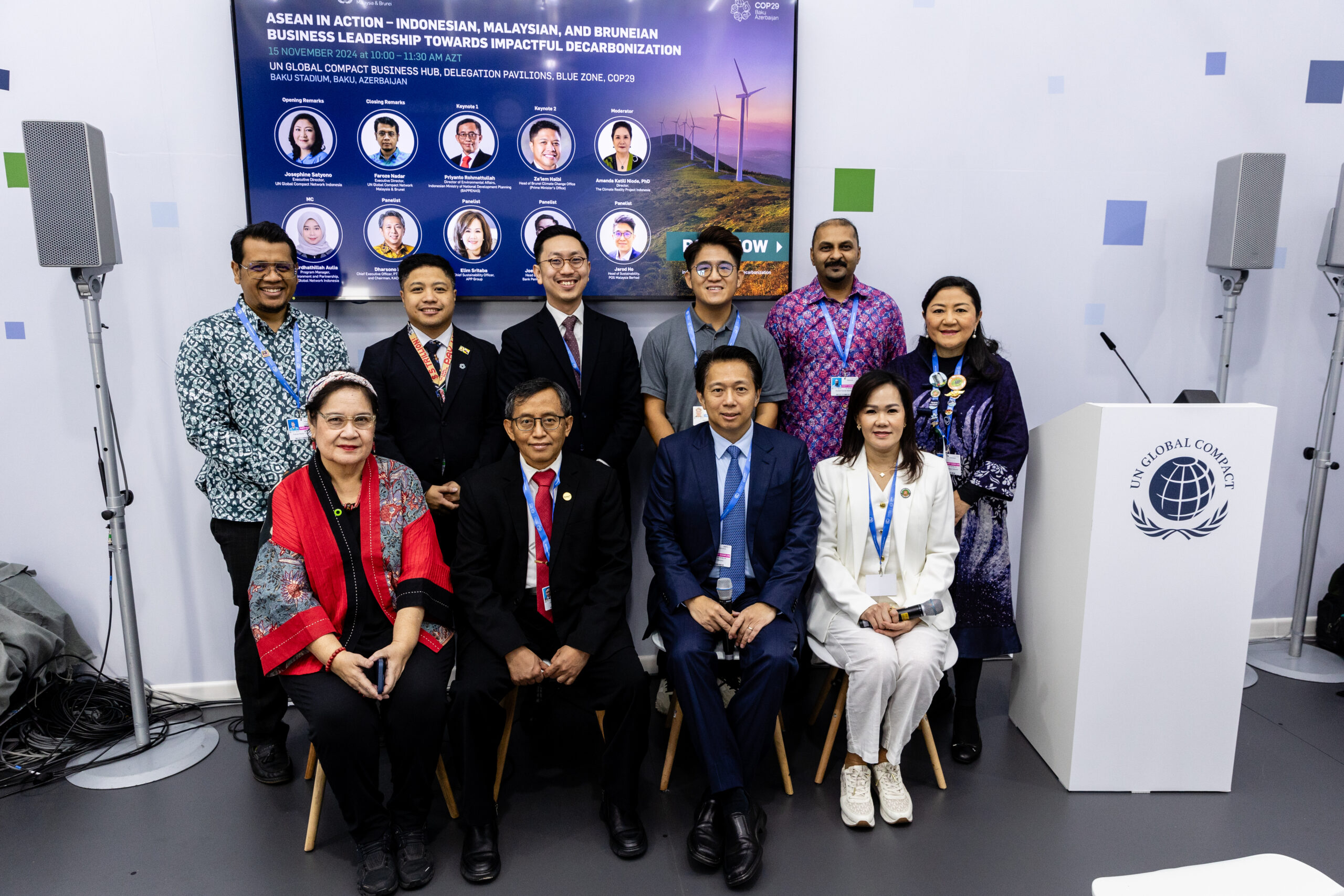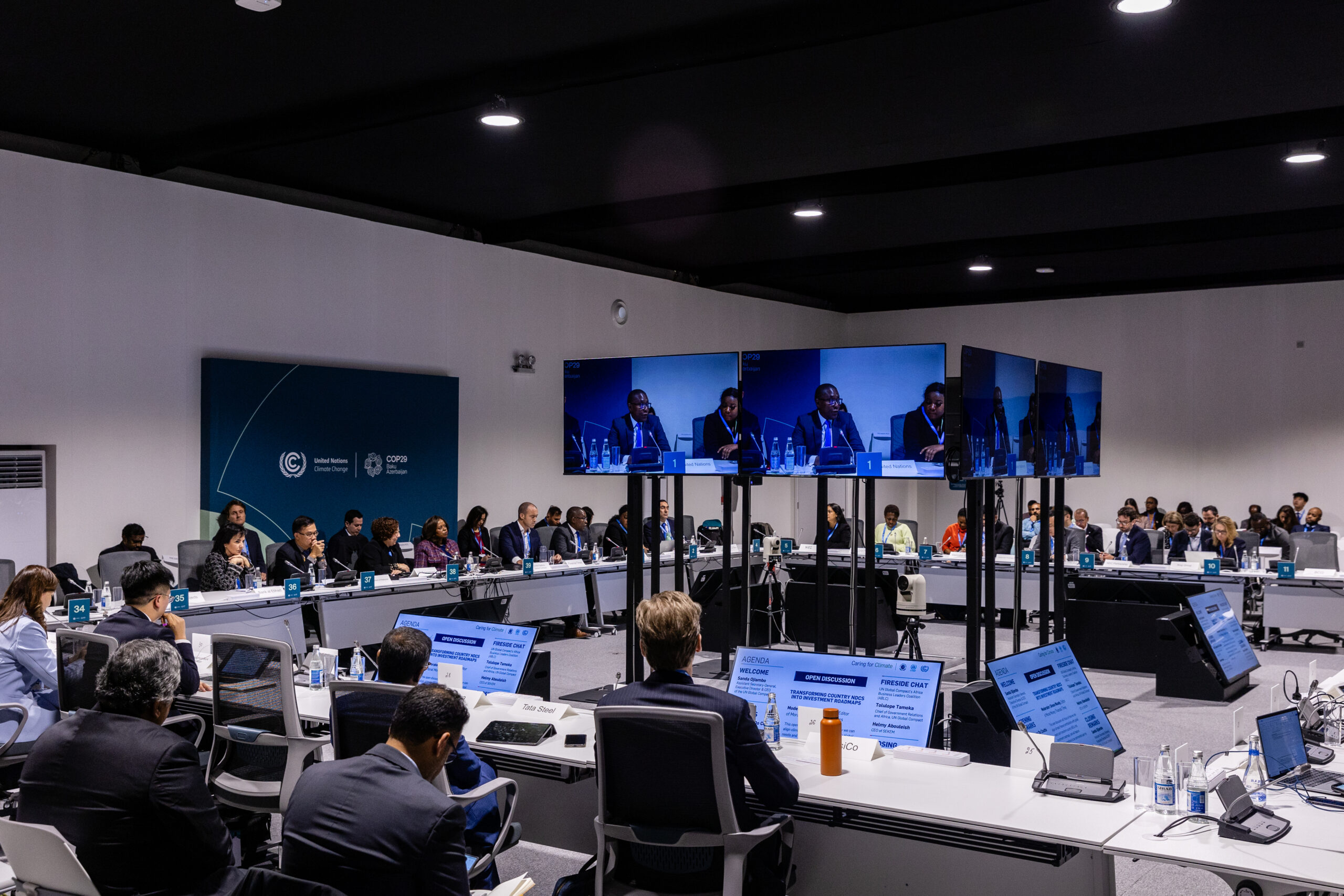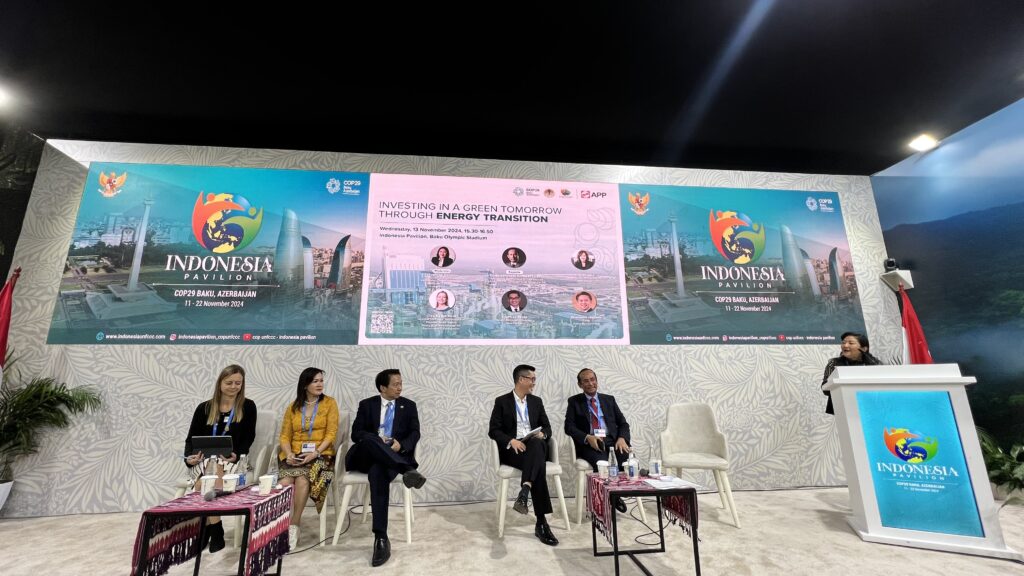
On 13 November 2024, at the Indonesia Pavilion during COP29 in Baku, Azerbaijan, the APP Group hosted an engaging and impactful session titled “Investing in a Green Tomorrow through Energy Transition”. The event highlighted the pressing need for decarbonization and underscored the importance of collaborative efforts in building a low-carbon future.
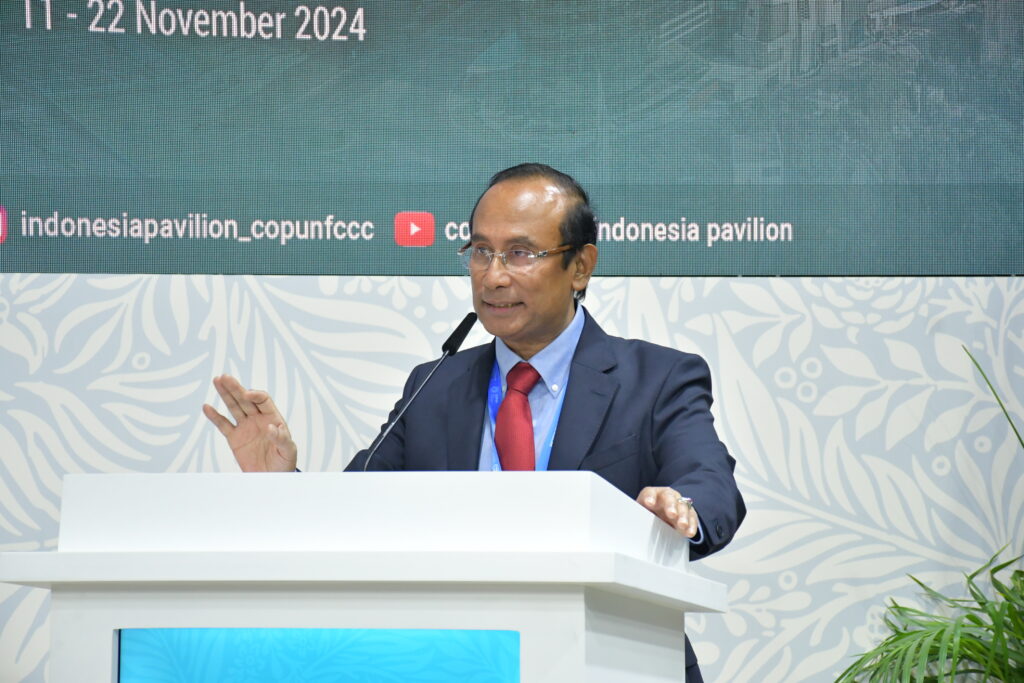
The session commenced with a keynote address by Dr. Satya Widya Yudha, M.Sc., Ph.D., from the National Energy Council of the Republic of Indonesia, who outlined the key characteristics of achieving net-zero emissions, including universality, substantial capital investment, and a front-loaded energy transition approach. This was followed by an insightful panel discussion moderated by Josephine Satyono, the Executive Director of the UN Global Compact Network Indonesia (IGCN), featuring representatives from APP Group, KADIN Net Zero Hub, New Forests, and WBCSD, each offering valuable perspectives on scaling climate-positive investments and driving meaningful change. The session showcased a strong collective commitment to advancing sustainable practices and achieving net-zero emissions
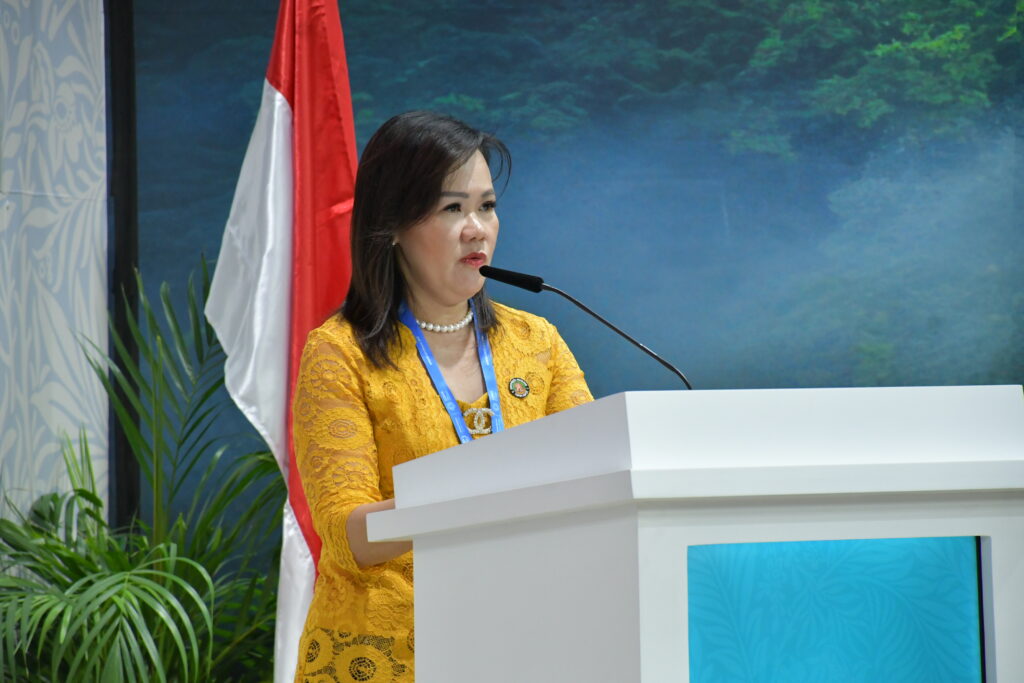
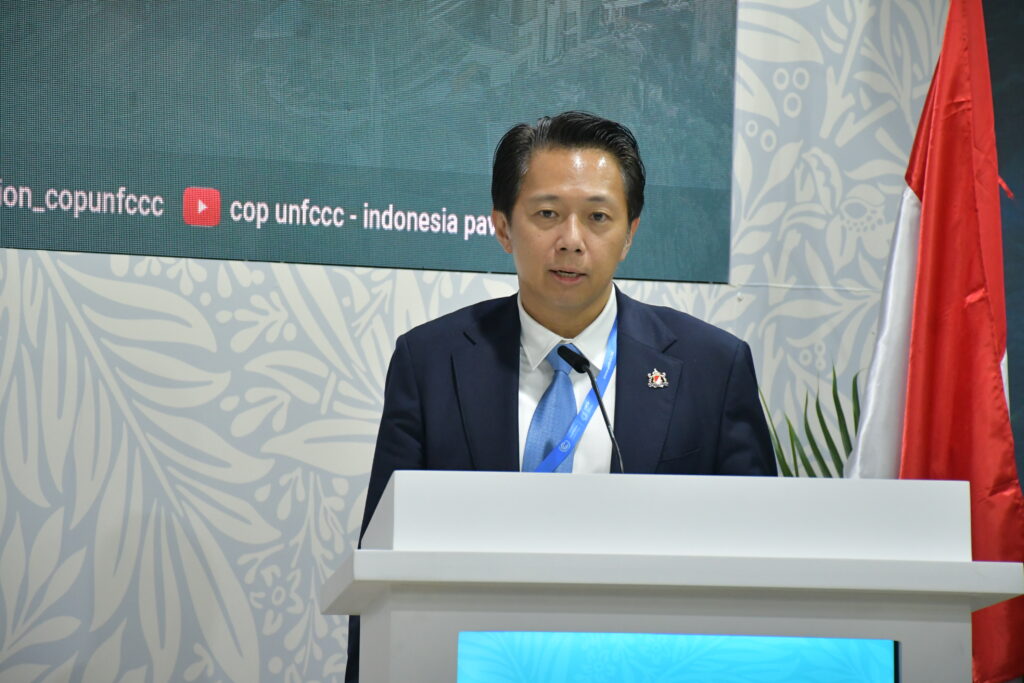
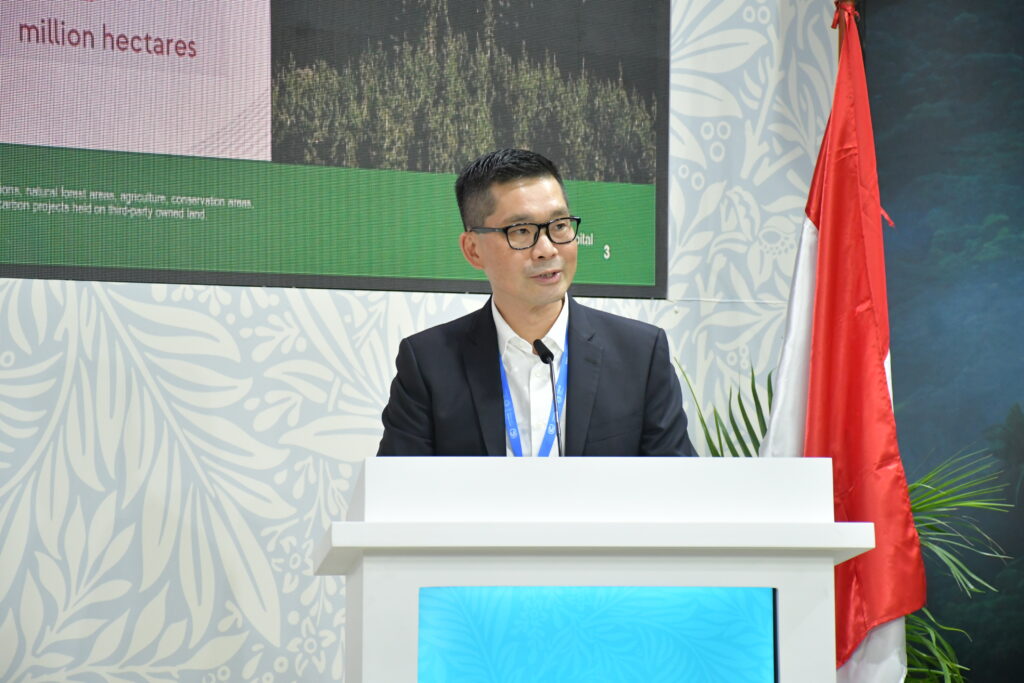
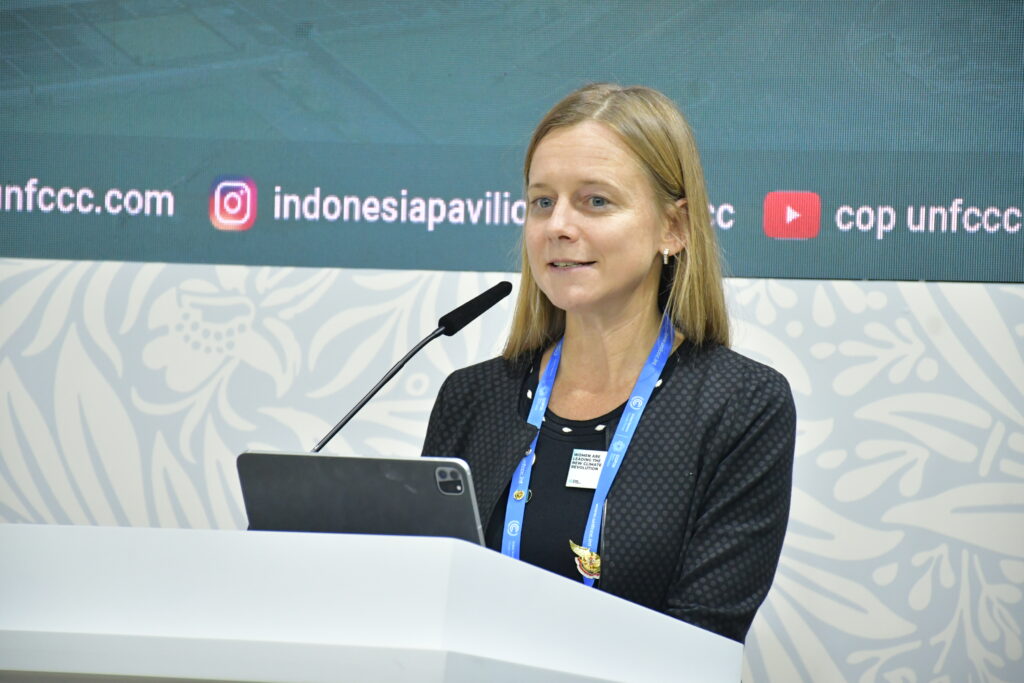
Key highlights from the session:
- APP Group: Elim Sritaba, the Chief Sustainability Officer of APP Group, presented the company’s ambitious Sustainability Roadmap Vision 2030 (SRV2030). This initiative aims to reduce supply chain emissions by 30% by 2030, supporting the broader goal of achieving net zero by 2060. The SRV2030 focuses on producing sustainable products, contributing to the circular economy by minimizing waste and maximizing resource efficiency.
- KADIN Net Zero Hub: Dharsono Hartono, the Chair of KADIN Net Zero Hub, highlighted the Hub’s efforts to empower over 50 Indonesian companies with tools, training, and capacity-building initiatives for effective decarbonization strategies. Developed in collaboration with organizations such as WRI Indonesia, WWF Indonesia, CDP, and IBCSD, the Hub aspires to position Indonesia as a global leader in sustainable business practices.
- New Forests: Geoffrey Seeto, the Senior Managing Director of New Forests, discussed the significance of investments in integrated landscape management (ILM) to optimize both financial and environmental outcomes. ILM takes a holistic approach to coordinating land-use activities across different sectors within a landscape. This strategy balances competing demands, enhances ecosystem services, improves livelihoods, and builds resilience against climate change.
- WBCSD: Clea Kaske-Kuck, the Director of Policy, Advocacy, and Member Mobilization at WBCSD, underscored the critical role of strengthening public-private partnerships to accelerate global emission reductions. She also emphasized the importance of integrated landscape investments, which align with sustainable investment strategies aimed at balancing economic growth with ecological preservation.
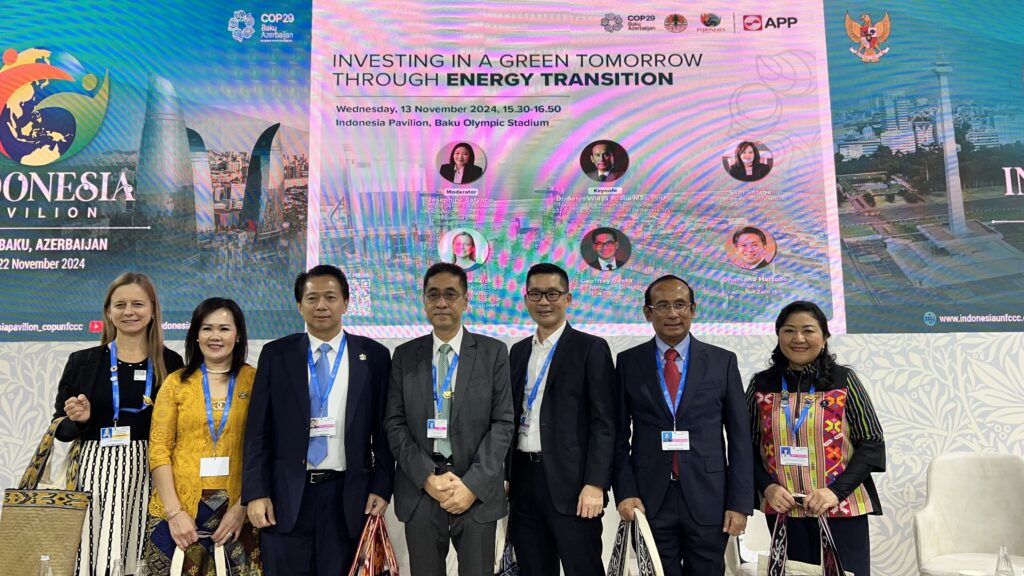
With an engaged audience, the session tackled challenges, explored opportunities, and identified actionable strategies for a green transition. It set a powerful example of public-private collaboration, showcasing how aligned efforts can drive impactful decarbonization initiatives and contribute to a sustainable future.


